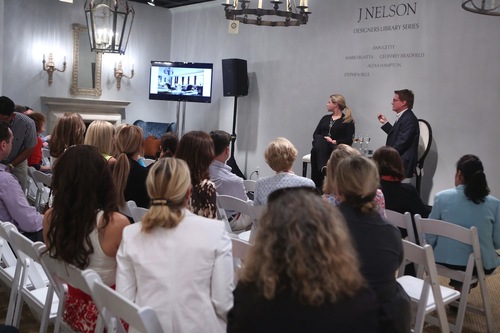You have to be careful about questions like that, and not only because the number of murderers claiming Nietzsche as their inspiration is higher than I would like. What the student usually means is: «Nietzsche mocks careful scholarship: Can I, in his spirit, write my paper however the hell I want and still get a good grade?» In this case, though, the student knew perfectly well how to write a scholarly paper. She wanted to do something else too: Be Nietzschean!
Here’s my line, for what it’s worth: You can do whatever you want in life — take inspiration from The Smurfs, for all I care — but I’m here to teach you how to read a philosopher, slowly and carefully, which is not an easy thing to do. If you want to be inspired by Nietzsche, you have to read him precisely, to make sure that it is Nietzsche who inspires you, not a preconception or a misappropriation or a scholarly reading, mine or anybody else’s, which is vulnerable to the interpreter’s peculiar agenda or the fashions of the hour. And what if, when you read him carefully, you find that he actually wrote things you think are false, wrong-headed, racist or sexist? Don’t choose between inspiration and careful scholarship, I say: Choose both.
Notice: I am implying that if you get inspired by misreading someone, or by swallowing false claims, then you’re doing something you shouldn’t be doing. But, of course, you might get inspired to do great things by misinterpretations or questionable claims. (Nietzsche could have told you that.) Notice, too: I work in an intellectual environment in which young people think that applying philosophy to their own lives is something unusual. It is an oft-repeated idea that philosophy in its modern, professional form has become detached from what was, in ancient times, a founding ideal: to teach people how to live well. In today’s university, the emphasis is on the search for the truth about whichever subject lies at hand, regardless of how, if at all, such truths change what you do when you leave the classroom. So while students often report finding philosophy «therapeutic,» they do so in passing, somewhat guiltily. Perhaps they worry that the moment I hear they’re emotional Nietzsche-users rather than cold Nietzsche-scrutinizers, my opinion of them will fall. Perhaps, against my better judgment, and in spite of being a user myself, they are right.
In 2008, Alain de Botton co-founded the School of Life, «devoted to developing emotional intelligence through the help of culture.»
Professional philosophers don’t present themselves as particularly wise or as people to turn to for advice about how to live. And why should we? That’s not what we were trained for when we were students, and it’s not what we promise in the prospectus. I remember, as a student, asking a philosophy professor something about what I should do the following year — whether I should continue with my studies or move on to something else. «That’s not a philosophy question,» she said. «That’s a life question. I can’t answer that.» I know what she meant, now more than ever, having faced such questions myself. You can’t expect a knowledge of philosophy to guide you through the big decisions about what to do with your life. But I can’t help wondering whether something has gone astray when «philosophy» questions and «life» questions are so easy to pull apart.
TheStuart Low Trustis a London-based charity that aims to promote health. It was founded in 1999, taking its name from a young man who had schizophrenia and killed himself after, as the charity puts it, «failing to find the help he needed.» The trust provides services and facilities for vulnerable people, including those who suffer from certain mental-health conditions and those who experience social isolation or emotional distress. For a number of years, I have volunteered for the trust’s Philosophy Forum, which meets most Sunday afternoons of the academic year. The forum is not itself intended to be therapy, or an outlet for participants to philosophize about the sorts of issues they may be experiencing. It is intended to be a philosophy forum, just like any other. I suspect it’s the best thing I’ve done with my philosophical education, though at the end of a session I often feel flat and frustrated.
The format of the forum meetings emphasizes participation and, compared with many university settings, minimizes what you might call the «teaching» element. There is a short talk at the start, introducing a philosophical topic, followed by a question: Do we have free will? When is it permissible to kill an animal? Does getting what you want make you happy? We break up into small groups to talk it over, then get back together.
As the format has settled, so have the questions that I ask myself after a session is done. There are many versions, but the best summary would probably be this one: Is there something about philosophy that makes it particularly suited to this kind of forum? Sometimes I think there isn’t. We get people together to talk, to listen, to share ideas — it could be anything from physics to photography, and the fact that it happens to be philosophy simply reflects, by chance, the interests of the forum’s founders and the trust’s contact list. But sometimes I think there is something particular about philosophy. A forum on theoretical physics or 20th-century history, requiring technical skills and a body of knowledge, would threaten to divide the room into experts and nonexperts, with participants as passive consumers of predigested knowledge and volunteers as their feeders. I don’t think philosophy can look like that; I know our forum doesn’t. On the other hand, an art forum that asked them to paint, sketch, or take pictures wouldn’t have the same factual content. The answer to the question «Do we have free will?»— whatever it might be — cannot just be a matter of creativity or personal taste.
But the more I think it matters that we are doing philosophy, rather than any other activity which gets people talking, the more it seems to matter whether we, as a group, are doing the philosophy well. And that’s an uncomfortable thought, because to think about the Philosophy Forum as a kind of amateur alternative to the university — a way of doing philosophy that prioritizes a therapeutic or true-for-me-if-not-true-for-you element over a truth-seeking or fact-finding element — would not only patronize the participants but also undermine the very thing I want the forum to offer: an opportunity to use philosophy to get something right about our lives. But if we are using philosophy to get something right, then a repulsive thought that cannot be true begins to hover in the background: that my colleagues and students, with their formal philosophical training, are somehow better at living than the rest.
I f the Stuart Low Philosophy Forum is one answer to what it might look like for philosophy to «change your life,» here is another: best-selling books, classes and workshops applying «great works» from «big thinkers» and artists to help improve your work, your relationships, your sex life, your mental health and your sense of community; signs in art galleries telling you that though you might be lonely, sad and flawed, there’s something in this painting that can help; architecture, not in the form of dry tours of great European cathedrals but in the form of holiday homes commissioned by famous architects and available for the public to rent. Another answer is, in other words, Alain de Botton.
De Botton became famous for writing books that apply high culture to everyday concerns: The Architecture of Happiness ; The Art of Travel ; How to Think More About Sex. His website describes him as «a writer of essayistic books» and approvingly cites a description of his work as the «philosophy of everyday life,» with topics ranging from airports to news to travel. Chapters in The Art of Travel combine a high-culture guide and a place: Flaubert for Amsterdam, John Ruskin in London. Likewise, The Consolations of Philosophy applies a philosopher to a life problem: Epicurus for not having enough money, Schopenhauer for a broken heart, Nietzsche for difficulties. Status Anxiety, which examines our fears of how we are perceived by others, is divided into two parts: «Causes,» like lovelessness and dependence, and «Solutions,» like philosophy and art. (Compare all this with the title of that Ph.D. your friend wrote: «Domestic Arts and Crafts in the Duchy of Brabant: 1183-1482.» The Design of Love, de Botton would call it.) The chapters of de Botton’s book on Proust echo the classic «how to» self-help formula: «How to Express Your Emotions» or «How to Take Your Time»; in several, the final paragraph begins with: «The moral?»
But applying the wisdom of big thinkers to life turned out to be only the beginning. In 2008, de Botton co-founded theSchool of Life, which claims in its mission statement to be «devoted to developing emotional intelligence through the help of culture.» You can visit the School of Life on Marchmont Street, in the pretty London area of Bloomsbury, near the blue plaques indicating where Lenin, Keynes, Darwin, and the Shelleys used to live. The classes, run by various members of the «faculty,» bear trademark de Bottonish titles: «How to Communicate Better in Love,» «How to Stay Calm,» «How to Make Your Mind Up,» «How to Be a Good Leader,» «How to Be Creative.»
De Botton’s books are honest and open. But he often produces vitriolic reactions, especially from academics and other public intellectuals.
One might imagine a symbiotic relationship between the School of Life and universities that offer more academically rigorous humanities courses. Some of the authors who publish through the school are highly respected academics trying out writing for a wider audience. Moreover, the school, like the Philosophy Forum, is a vivid illustration of something that is easy to forget amid all the talk of justifying the humanities: Many people whose lives take place firmly beyond the realms of the university care about, and want to know more about, literature, art, and philosophy. De Botton’s books are honest and open. He presents himself not as a guru with all the answers but as a lost soul navigating by the constellations of great thinkers, and he invites you to do the same. A frequent motif in his work, which one thinks academics would appreciate, is the encouragement to pay more attention, or a different kind of attention, to what we take for granted.
But de Botton often produces vitriolic reactions, especially from academics and other public intellectuals. If you’re a graduate student or a professor and you’ve never heard of him before, you probably hate him already, just from the description I’ve given. Now add his success from the age of 23 (a novel, Essays in Love ), his French name and his penchant for making disparaging remarks about the academy and the art world, cap it all with the fact that his family is unimaginably wealthy, and the result appears to be that critics feel sweet release from the pressures of holding back. You could make a general compendium of insults just from lines aimed at de Botton, as long as your target is a bit of a ponce: His»huckster’s sincerity»is smarmy and banal; his books contain their «quota of piffle dressed up in pompous language»; «insidious ideas» in»twee prose»;»astonishingly impudent.»
Often his credentials are called into question: «And please, before I say another word, do let’s stop calling him a philosopher,»writesthe author of «Why Alain de Botton Is a Moron.» A New York Times reviewaccused de Botton’s The Pleasures and Sorrows of Work of trespassing on the dignity of people who have to earn money to survive. One focus was the passage in which he is fed lunch by the manager of a manufacturing plant who bores him, perhaps partly on account of the manager’s «surprisingly intense pride in the plant and its workers.» To the Times reviewer, de Botton replied: «I will hate you till the day I die and wish you nothing but ill will in every career move that you make.» It was an uncharacteristic outburst, perhaps, and subsequently a source of embarrassment to its author, but everyone seems to know about it.
De Botton does not see what he offers as academia-lite. The sales material at the school promises to connect us with «big thinkers»: «A big thinker isn’t just someone who is famous for their ideas. What makes them big is that they get at things which matter to us personally.» The connection between «big thinking» and «what matters to us personally» accounts, I think, for the pattern that emerges in so many of de Botton’s titles: Take ___ [some well-known intellectual topic] and apply it to ___ [something you do or want or worry about all the time, something that matters to you], e.g., How [Proust] Can [Change Your Life] or [ Consolations] of [Philosophy]. For de Botton, the tags taken from formal education are a throwdown, not a rip-off: You could have a school and a faculty, a classroom and a campus, doing this. Are you sure you know why you don’t?
I’m not. One has to be careful making generalizations about a profession whose members are selected, in part, for how good they are at finding counterexamples. But, in some moods, I feel certain that if all the professional philosophers stopped writing philosophy altogether — if a freak accident muted the profession, its students and its publishers — astonishingly few non-philosophers would notice. No industry anxiously awaits the latest philosophical innovations. No general public hangs on our words. Even within the profession, the average philosophy publication is cited once and probably only to be mischaracterized, cast aside, or pigeonholed by a new author, whose work, in turn, will meet the same fate. Sometimes, even as I work on my next one, I imagine a philosophy publication as one of those giant icebreaking vessels that rides at the head of an Arctic convoy, powering a path homeward through the frozen ocean. Only in this case, the ocean is blocked not by ice but by other icebreaking vessels, bobbing, marooned where they ran out of fuel, just as this one will maroon somewhere, adding more debris for the next. And in this case, there is no clear sense of home — only homesickness. Ghastly glorious, these vessels.
I am struck, in such moments, by a startling contrast between the intelligence, seriousness, and energy that is poured into this activity by the professionals and its lack of bite in the world. It is true that there is a public appetite for philosophy. But I am confident that the books and journals that have been written up to now can satisfy it adequately. These thoughts do not, perhaps, reflect my considered opinion of my work and that of my colleagues. But I think them often enough that I’m n…
Source:





